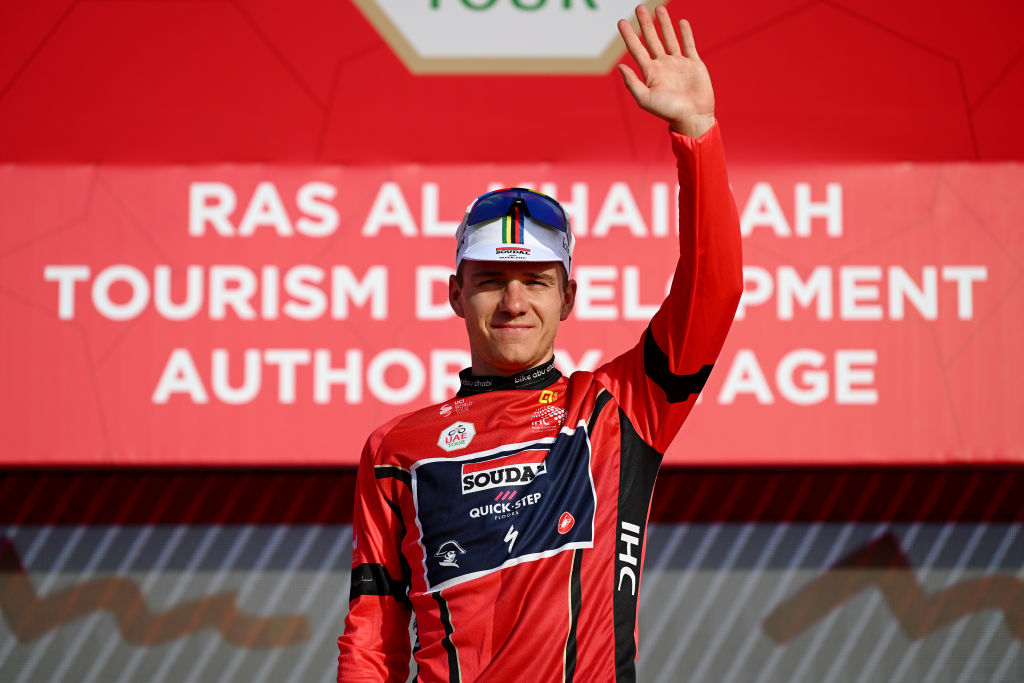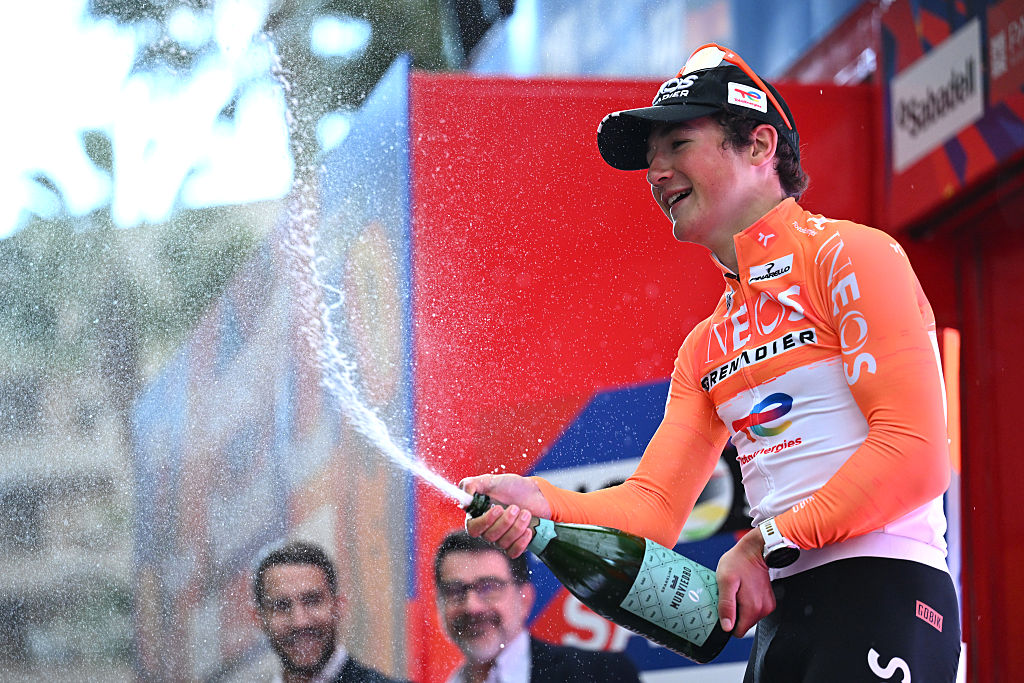Remco Evenepoel sails through fraught UAE Tour echelons, lead unscathed
Belgian snatches bonus seconds, bridges across gap to lead for third day

The latest race content, interviews, features, reviews and expert buying guides, direct to your inbox!
You are now subscribed
Your newsletter sign-up was successful
If Remco Evenepoel (Soudal-QuickStep) experienced any stress in the echelons that briefly flared up in the fraught final kilometres of the UAE Tour's stage 5, he wasn't showing it afterwards.
The UAE Tour leader even spent time chatting to journalists after his mandatory daily press conference, joking about how he could now say he had outsprinted teammate and in-house fast man Tim Merlier, albeit for some intermediate time bonus seconds.
Evenepoel then produced a short but impressively intense turn of speed to ensure he was on the right side of a split in the final kilometres before finishing safely in a second successive chaotic bunch sprint, aptly described by stage winner Dylan Groenewegen as a "washing machine."
When the dust settled on a more eventful stage 5 finale than expected, Evenepoel remained firmly in the lead, crossing the line securely in 44th place and with a slightly increased overall advantage of nine seconds on his closest competitor Luke Plapp (Ineos Grenadiers).
Discussing the battle for bonus seconds around 40 kilometres from the line, Evenepoel explained in a good-humoured tone, "When we went for the intermediate sprint, Tim was in front of me and because when he saw a red jersey just behind him, he thought I was a Bahrain Victorious rider.
"But then he saw that no, it was me and so" - with lone breakaway Thomas De Gendt taking the top prize - "I got that two-second bonus."
"It would have been silly if he'd taken two and I'd got one, and now I can boast how I beat Tim Merlier in a sprint," he joked.
The latest race content, interviews, features, reviews and expert buying guides, direct to your inbox!
Just after De Gendt had been caught, the final section of the race was more of a serious challenge, perhaps, as a fast-changing combination of EF Education-EasyPost, Bahrain Victorious, Bora-Hansgrohe and UAE Team Emirates forged open a gap and then all tried to keep the splits going.
The move ahead, which contained Evenepoel, gained nearly 30 seconds at one point on Plapp's chasing group. But after a hot pursuit of almost eight kilometres, finally, the bunch regrouped."
"I was up near the front, and there was a small split and I could join it just in time so I was in the front again," Evenepoel said, before folding his explanation of the last kilometres into what happened in the sprint.
"I knew that today could be a fast run-in and a bit hectic with all those corners, and then all the roundabouts in the last straight to the finish. And in a headwind it's always hectic because you come with more speed from the back."
"So I saw some crazy moves in the bunch, but personally I arrived safe at the finish. So - perfect."
Evenepoel also fielded a more analytical question about the effects of Middle Eastern races on rider physiology in general, after Thomas De Gendt told Belgian media that, broadly speaking, his power output was actually dropping in Oman and the UAE as a consequence of the relatively easy pace of some stages.
However, Evenepoel said that wasn't the case for him and he said that as he has bigger fish to fry than De Gendt, he wasn't even checking his power output that much.
"Not really because I am here to try and win the race so I need to be fresh for Sunday and Jebel Hafeet," Evenepoel said.
"Thomas doesn't have to be as fresh for Sunday, I understand what he means but for me, these first three days were pretty hard with the echelons. So I pushed quite hard to stay on the front."
"I think you know when you come to races like this a few days can be really, really slow," as was the case for stage 4, for example.
"But the only way to adapt is to eat a bit less, to try to treat some of these stages as recovery days and use those days to build a stage like Sunday. In any case for him, today [stage 5] was a nice training day."
Alasdair Fotheringham has been reporting on cycling since 1991. He has covered every Tour de France since 1992 bar one, as well as numerous other bike races of all shapes and sizes, ranging from the Olympic Games in 2008 to the now sadly defunct Subida a Urkiola hill climb in Spain. As well as working for Cyclingnews, he has also written for The Independent, The Guardian, ProCycling, The Express and Reuters.

